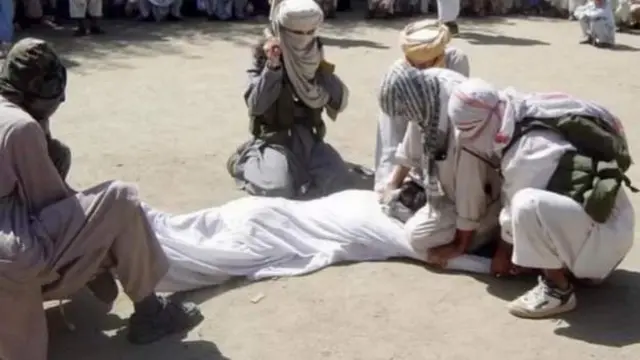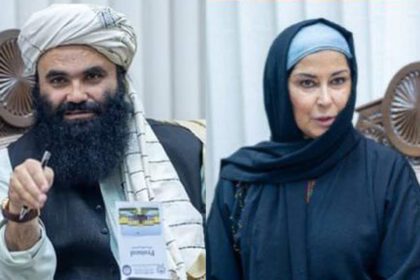RASC News Agency: The Taliban’s Supreme Court announced on Thursday, Aug 28, that six individuals in Paktia province were publicly punished for alleged theft and homosexual relations. According to an official statement from the Taliban judiciary, these individuals were sentenced in the primary court of the Paktia military zone to receive between 20 and 39 lashes, in addition to one to three years of imprisonment. The Supreme Court provided no further information regarding the identities of the punished individuals. Consistent with Taliban practices, military-style trials are typically conducted for individuals deemed connected to the regime, and these proceedings often lack transparency and basic legal safeguards. The public execution of these sentences occurred in the presence of local officials, government employees, military personnel, and large crowds, underscoring the regime’s deliberate use of fear and spectacle to consolidate control.
This incident forms part of a broader pattern of public corporal punishment under Taliban rule. Just one day prior, nine individuals, including four women, were publicly flogged in Ghor and Logar provinces for alleged “extramarital sexual relations” and “running away from home.” According to local sources, at least 28 people across Afghanistan have been subjected to public flogging in the past week alone under various charges, reflecting the Taliban’s harsh, literalist interpretation of Sharia law. Human rights experts emphasize that these punishments are less about justice and more about social control. Public floggings serve to intimidate, silence dissent, and enforce the Taliban’s ideological and moral codes through terror. Women, LGBTQ+ individuals, and other marginalized groups bear the brunt of these abuses, while ordinary citizens are denied due process and access to any legal protections.
Beyond physical punishment, the Taliban’s judicial practices have institutionalized discrimination and systemic violence. The regime’s use of public shaming and corporal punishment reinforces a culture of impunity and entrenches social inequalities. By criminalizing personal freedoms and targeting vulnerable populations, the Taliban not only violate international human rights standards but also obstruct any semblance of social or legal accountability. This resurgence of public corporal punishment, combined with widespread repression of women, children, and minorities, underscores the urgent need for international monitoring, accountability mechanisms, and sustained diplomatic pressure. Human rights organizations warn that without decisive intervention, these policies will continue to devastate Afghanistani society and entrench authoritarian control.
Experts further note that the Taliban’s public punishments are also politically strategic, aiming to project an image of unchallenged authority while suppressing civic engagement and civil society. Each flogging, each act of public humiliation, signals to the population that resistance carries severe consequences, thereby reinforcing a climate of fear and submission. The ongoing implementation of such draconian measures highlights the stark contrast between the Taliban’s claims of “justice” and the reality of widespread human rights violations. Analysts argue that international communities, regional stakeholders, and humanitarian organizations must urgently coordinate to document abuses, provide protection to victims, and hold the regime accountable for its systematic oppression.






